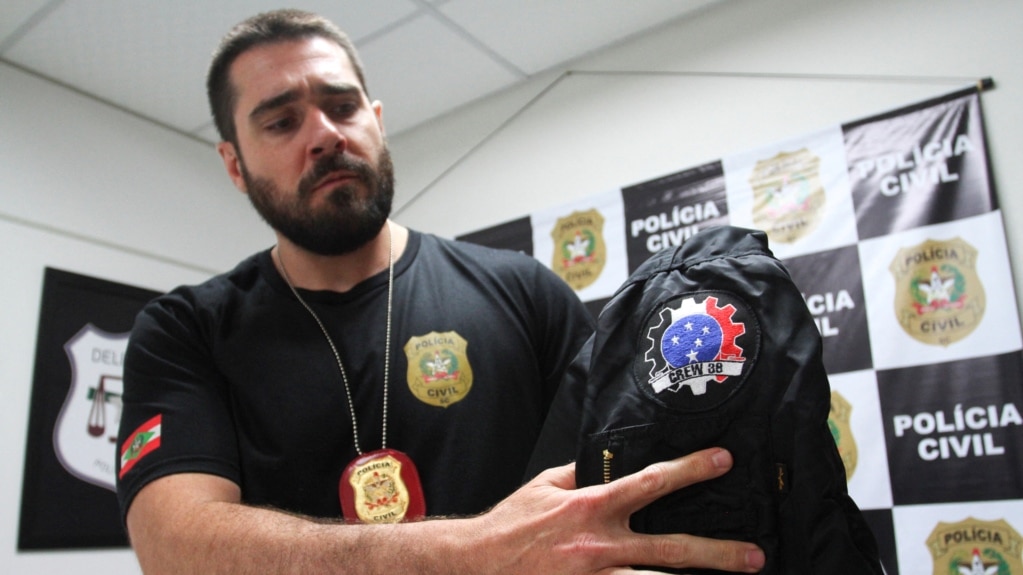Last November, Andrea Muller was organizing an event for Haitian immigrants in the southern Brazilian state of Santa Catarina. Just hours before the event, she received a frightening message.
"Cancel the Haiti exhibition or we will commit a massacre," read the subject line of the email, seen by Reuters.
"Santa Catarina is a land of WHITE PEOPLE, FOR WHITE PEOPLE," the unnamed sender wrote. They signed off with the Nazi salute "SIEG HEIL."
The event went ahead without any problems and with police present. But the email is a sign of a small but rising number of cases of neo-Nazism in Brazil. The cases have increased after far-right politics strengthened during former President Jair Bolsonaro's 2019-2023 term.
Bolsonaro was widely criticized for his defense of Brazil's military dictatorship from 1964 to 1985. Critics say his anti-democratic attacks on the country's voting system in last year's election endangered the country's native people.
Brazil's 1989 racism law punishes the use of symbols connected to Nazism such as the swastika. Speech considered "apologies for the regime of Adolf Hitler" is not protected under freedom of speech laws in Brazil.
The police force said it has opened 21 investigations into the production, sale, sending or showing of swastikas so far this year. That is up from just one in 2018, the year Bolsonaro was elected.
Some experts say the problem is worse than the numbers show. In two school attacks this year, the suspects wore armbands with Nazi swastikas.
Researchers at Sao Paulo state's Unicamp University have found that the number of neo-Nazi groups in Brazil has increased more than 10 times since 2015. The Unicamp researchers said Bolsonaro had "fueled" the rise of such groups.
Guilherme Franco de Andrade is an expert on the far right at the Federal University of Mato Grosso do Sul. He said neo-Nazism was clearly a growing problem but did not place all the blame on the former president. Instead, he said its growth was more likely tied to growing conservatism after years of corrupt leftist administrations.
"To credit Bolsonaro directly with any leadership ... is a mistake," he said.
Southern hate
The problem of neo-Nazism is especially bad in Santa Catarina. That is a state where many have German and Italian ancestry. The state has the largest proportion of white residents in Brazil, with 84 percent.
Arthur Lopes leads investigations into neo-Nazi groups. In November, Lopes' team arrested eight suspected neo-Nazis who called themselves Crew 38. Several of the men were tattooed with Nazi symbols and English phrases like "White Power."
During the raid, Lopes' team found red, white, and black flags, and T-shirts with the symbol of the Hammerskins, a group connected to an American neo-Nazi organization. There were also recordings of what Lopes called "white supremacist bands." Lopes said he suspects they were selling them to Hammerskins groups in the United States and Europe.
Lopes said charging those connected to Nazism can be difficult under Brazilian law, which he called "weak" and "outdated." The use of symbols other than the swastika that refer to the Nazi regime generally goes unpunished.
I’m Dan Novak.

